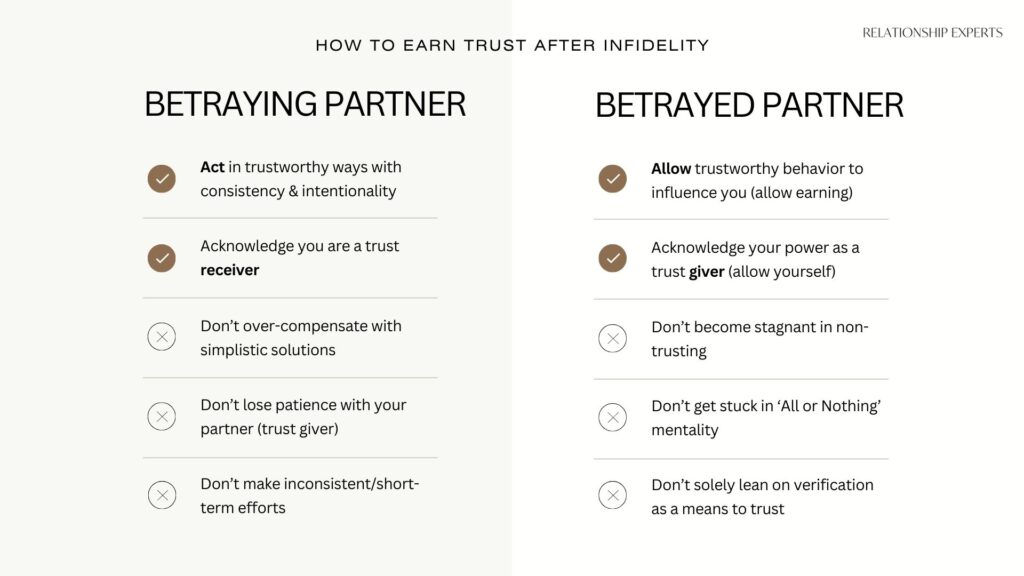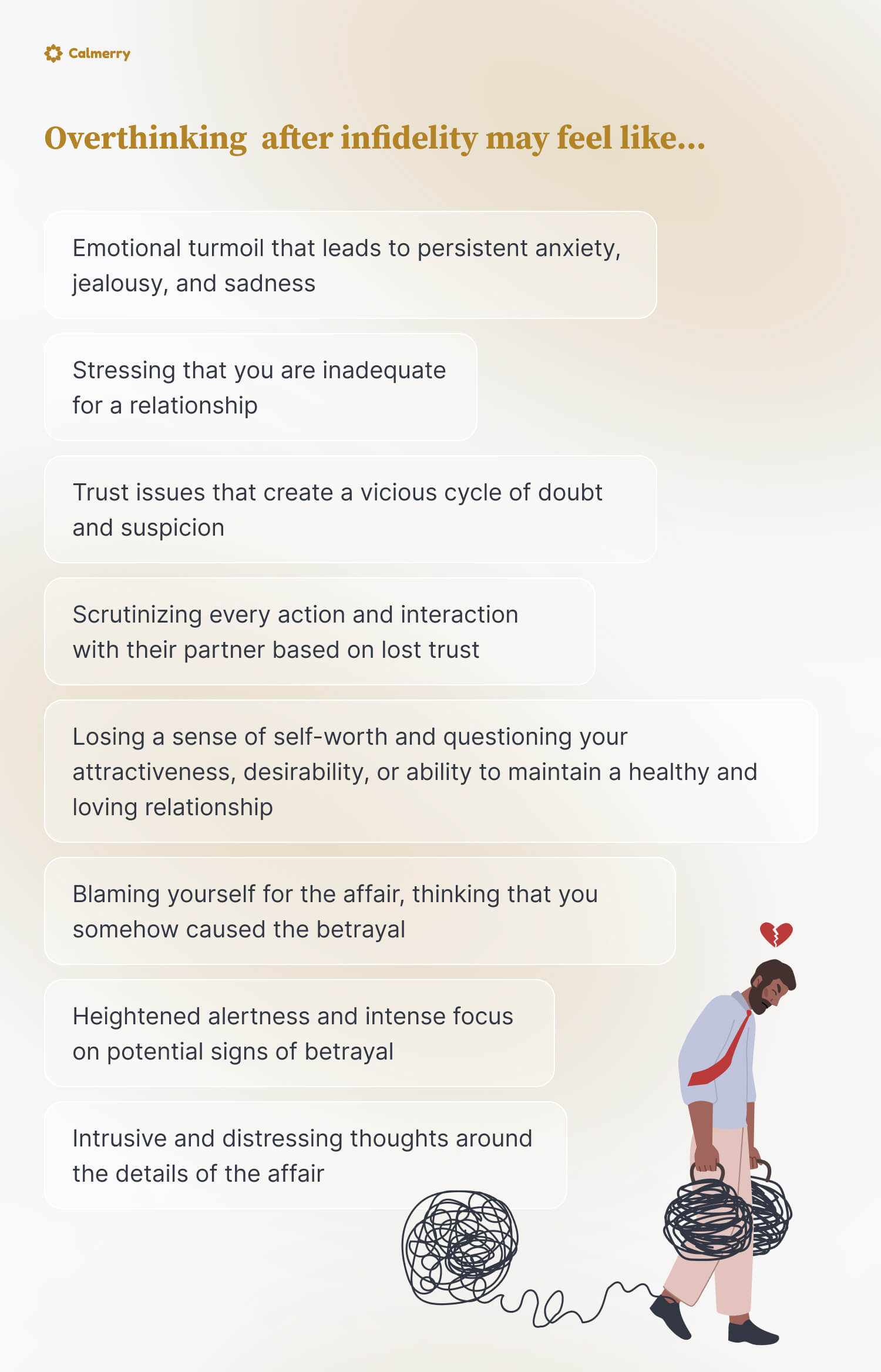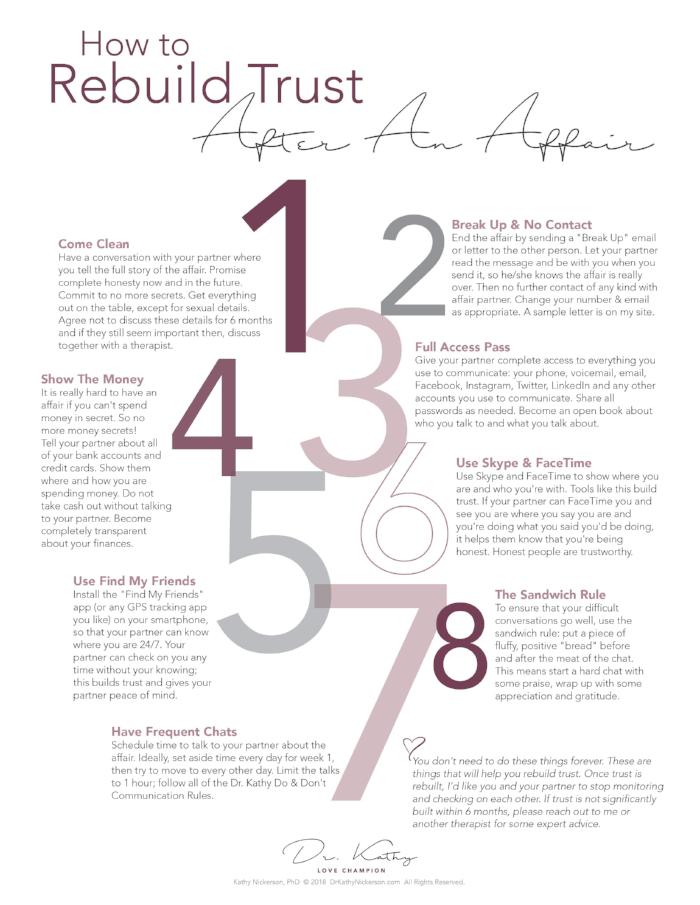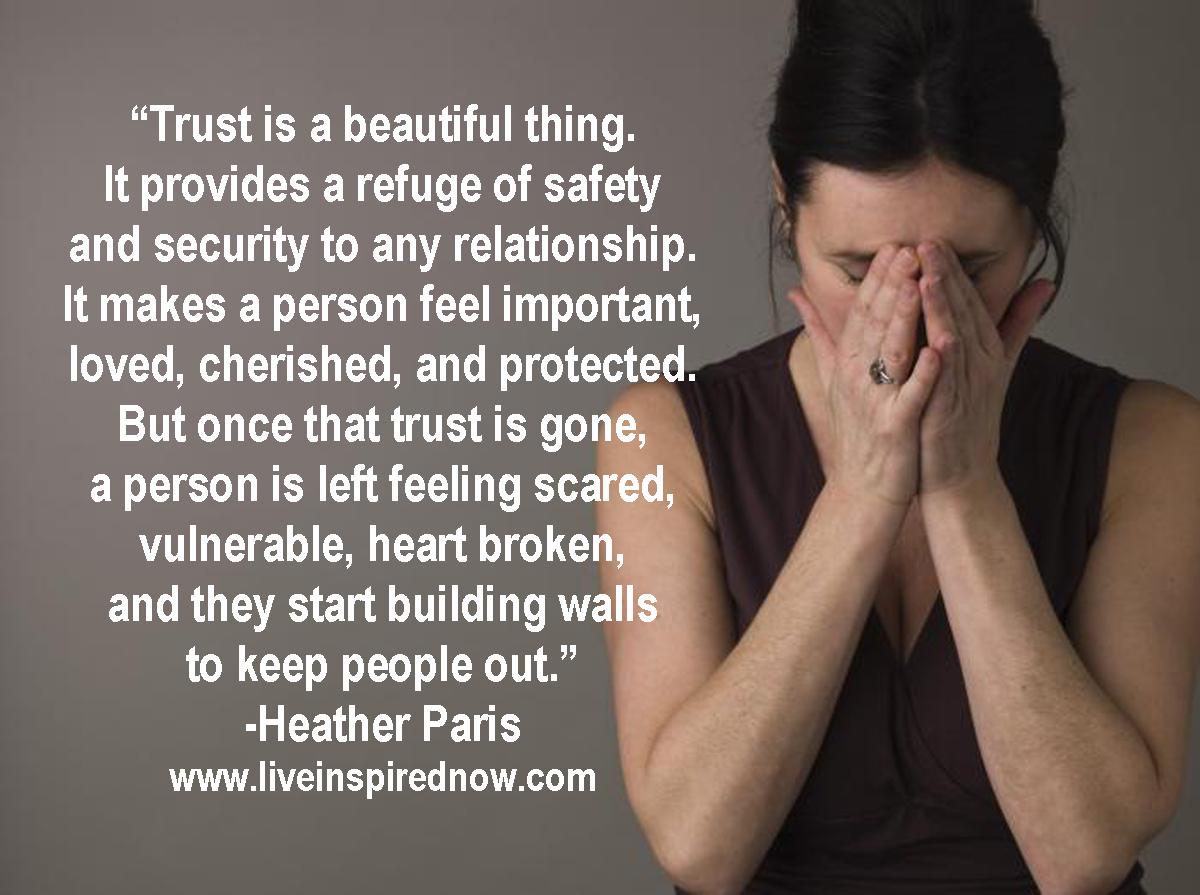
Understanding the Impact of Betrayal
Emotional Effects of Being Cheated On
Experiencing infidelity can trigger a whirlwind of emotions. Those who have been cheated on may feel a complex mix of:
- Shock and disbelief: The initial realization can leave one feeling numb.
- Sadness and grief: Mourning the relationship or the trust that has been lost.
- Anger and betrayal: A natural response when one feels wronged.
This tumultuous emotional landscape can lead to questioning self-worth and overall happiness, making the healing process all the more challenging.
Trust Issues and Healing Process
After the initial shock, trust issues can dominate the healing process. As trust is foundational in any relationship, its breach may result in:
- Fear of intimacy: Individuals often become wary of getting close to others.
- Hyper-vigilance: Constant worrying about potential betrayal in future relationships.
Healing requires time, introspection, and sometimes professional guidance. Establishing open communication with oneself and partners can pave the way to rebuilding trust, fostering emotional resilience, and moving towards a healthier outlook on relationships.

Acknowledging the Reality of Infidelity
Facing the Truth About the Cheating
Once the storm of emotions settles, it’s vital to face the harsh reality of infidelity. Acknowledging the facts can be painful but is essential for healing. It involves:
- Understanding the breach of trust: Recognizing what happened can validate feelings and experiences.
- Communicating openly: This might include asking questions to get clarity, even if the answers hurt.
Embracing this truth is a crucial step towards healing.
Dealing with Anger and Resentment
Anger and resentment frequently accompany the acknowledgment of betrayal. Learning to manage these emotions is vital for personal growth. Consider:
- Journaling feelings: Writing can be therapeutic, allowing emotions to flow freely.
- Channeling anger positively: Engaging in physical activities or art can redirect energy.
By processing anger constructively, individuals can begin to move past resentment and navigate towards forgiveness, which ultimately fosters emotional freedom.

Rebuilding Self-Trust and Confidence
Self-Care Practices and Self-Esteem Building
After working through feelings of anger and resentment, the next step is rebuilding self-trust and confidence. Engaging in self-care practices can significantly enhance self-esteem. Some effective methods include:
- Mindfulness and meditation: These practices can center thoughts and cultivate self-awareness.
- Physical activity: Exercise releases endorphins, boosting mood and self-esteem.
- Pursuing hobbies: Investing time in activities you love can reignite passion and joy.
Establishing these routines can create a strong foundation for inner growth.
Setting Boundaries and Asserting Needs
To further reinforce self-trust, it’s crucial to set boundaries and assert personal needs. This involves:
- Identifying limits: Understand what is acceptable and communicate these boundaries clearly.
- Practicing assertiveness: Learning to express needs without fear can foster self-respect.
By prioritizing personal boundaries, individuals can cultivate healthier relationships and regain confidence in their decisions, ultimately reinforcing a sense of safety and self-trust.

Communicating and Reconnecting with Your Partner
Honest Conversations and Transparency
Once self-trust is regained, it’s essential to focus on communicating and reconnecting with your partner. Honest conversations about feelings, thoughts, and expectations are crucial. A few tips include:
- Active listening: Give your partner full attention and validate their feelings.
- Using “I” statements: Express feelings without blaming, such as “I feel hurt when…”
This openness fosters an environment of transparency, allowing both partners to express their vulnerabilities and rebuild trust together.
Rebuilding Intimacy and Connection
Reconnecting isn’t just about conversation; it’s about reigniting intimacy. Implementing small rituals can strengthen your bond. Consider:
- Date nights: Regularly schedule time together to deepen your relationship.
- Physical affection: Small gestures of touch, like holding hands or hugs, can enhance emotional closeness.
By prioritizing these intimate moments, couples can foster a renewed sense of connection, moving forward together with a refreshed commitment to their relationship.

Seeking Professional Support and Guidance
Individual Therapy for Healing
As you continue rebuilding your relationship, seeking professional support can provide invaluable perspectives. Individual therapy can play a transformative role in the healing process. It allows for an exploration of:
- Personal feelings: Understanding the depth of your emotions surrounding the betrayal.
- Coping mechanisms: Developing strategies to manage emotional distress.
Many individuals find that therapy not only aids in healing but also enhances self-awareness, allowing for personal growth beyond the relationship.
Couple’s Counseling for Reconciliation
Once personal healing begins, couple’s counseling can offer a structured environment to address relationship dynamics. In sessions, couples can:
- Facilitate open dialogue: A therapist can guide discussions about feelings, needs, and concerns.
- Identify patterns: Understanding recurring issues can lead to more effective conflict resolution.
By engaging in couple’s counseling, partners can work together towards reconciliation, fostering a deeper understanding and commitment to rebuilding their connection. This support can be the bridge to a new, healthier chapter in their relationship.

Moving Forward and Building a Stronger Relationship
Forgiveness and Letting Go of Resentment
As healing continues, moving forward requires embracing forgiveness. This doesn’t mean excusing the betrayal, but rather freeing oneself from the heavy burden of resentment. Key steps include:
- Acknowledging feelings: Recognize and validate the emotions tied to betrayal.
- Choosing to forgive: Make a conscious decision to let go for personal peace.
Forgiveness opens the door to emotional freedom, allowing both partners to focus on rebuilding rather than dwelling on the past.
Commitment to Growth and Trust-Building Activities
Building a stronger relationship also involves actively committing to growth. Engaging in trust-building activities can solidify the healing process. Consider:
- Joint workshops: Participate in relationship workshops focusing on communication and intimacy.
- Shared goals: Set objectives together, creating a sense of teamwork and collaboration.
These initiatives not only foster deeper connections but reinforce the commitment to a healthier, more resilient partnership, paving the way for a brighter future together.
